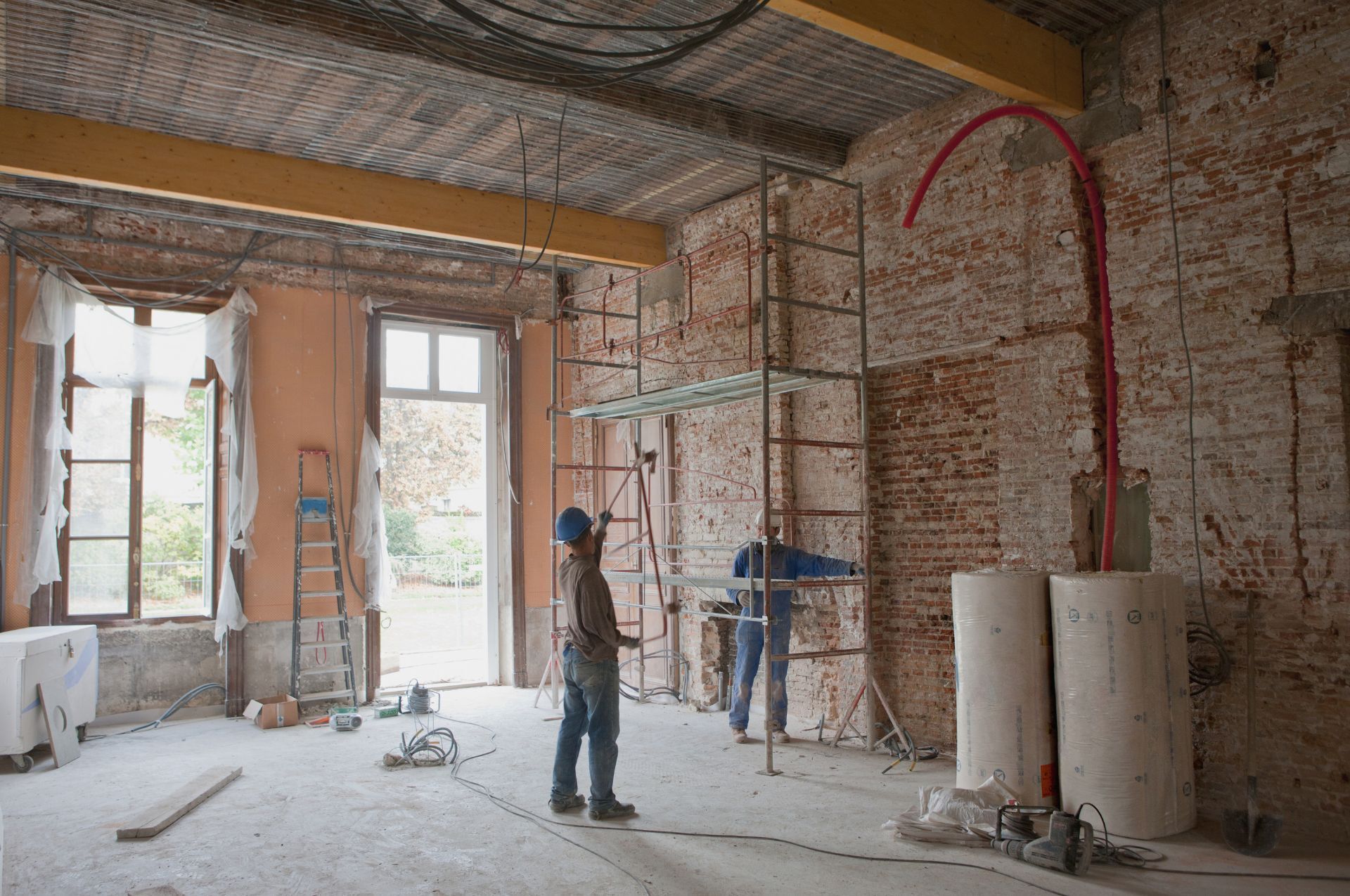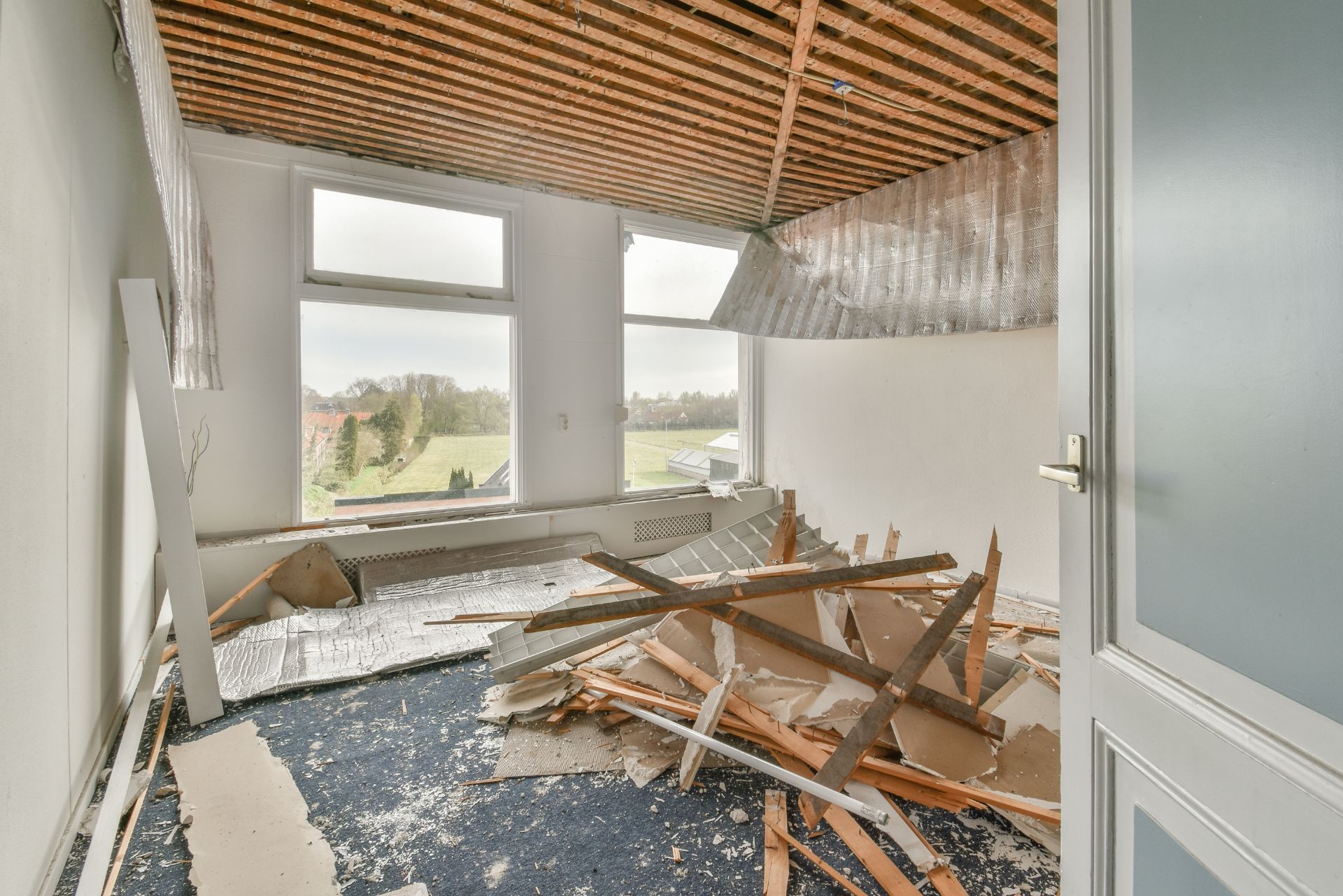
Top 3 Recommended Policies
Renovating a home or commercial property in Connecticut can be an exciting yet complex endeavor. Whether updating a century-old colonial or modernizing a downtown office space, the process involves numerous risks—from unexpected damages to liability concerns. That’s where renovation insurance steps in, providing essential protection for contractors, homeowners, and property managers alike.
This comprehensive guide will walk you through everything you need to know about renovation insurance in Connecticut. From understanding the types of coverage available to navigating state-specific regulations, this article aims to equip you with the knowledge to safeguard your renovation project effectively.
Understanding Renovation Insurance: What Is It and Why Is It Important?
Renovation insurance is a specialized form of coverage designed to protect parties involved in remodeling or construction projects. Unlike standard homeowner’s insurance, renovation insurance addresses the unique risks associated with construction activities, including property damage, theft, and liability claims.
In Connecticut, where many homes are older and commercial buildings require careful compliance with local codes, renovation insurance plays a critical role in mitigating financial loss. Without proper coverage, unexpected incidents can lead to costly repairs, legal battles, or even project shutdowns. This is particularly crucial in a state where historical preservation is often a priority, and any damage to a property could not only incur financial costs but also affect its historical integrity.
Key Risks Covered by Renovation Insurance
Renovation projects can expose property owners and contractors to various risks. Some of the most common include:
- Property Damage: Accidental damage to the existing structure or neighboring properties during construction.
- Liability Claims: Injuries to workers, visitors, or third parties on the job site.
- Theft and Vandalism: Loss or damage to tools, materials, or the property itself.
- Delays and Financial Loss: Coverage for losses related to project delays caused by insured events.
Having the right insurance policy ensures that these risks do not translate into overwhelming financial burdens. Moreover, renovation insurance can also provide peace of mind for homeowners who may be anxious about the potential for accidents or unforeseen complications during a project. Knowing that they have a safety net allows them to focus on the creative aspects of renovation rather than the potential pitfalls.
Additionally, many renovation insurance policies can be tailored to fit the specific needs of a project. For instance, if a homeowner is undertaking a significant remodel that includes structural changes, they might require higher coverage limits for liability and property damage. This customization not only enhances protection but also ensures that homeowners and contractors are adequately prepared for the unique challenges that come with their specific renovation projects. By investing in comprehensive renovation insurance, stakeholders can foster a smoother workflow and maintain a positive relationship throughout the construction process.

Types of Renovation Insurance Policies in Connecticut
Connecticut offers several types of insurance policies tailored to renovation projects. Understanding each type helps property owners and contractors select the best coverage for their needs.
Builder’s Risk Insurance
Builder’s risk insurance is specifically designed to cover buildings under construction or renovation. It protects against damage caused by fire, wind, theft, vandalism, and other perils during the project timeline.
In Connecticut, builder’s risk policies often cover materials, fixtures, and equipment on-site or in transit. This insurance is typically purchased by the property owner or general contractor and lasts until the project is completed or the property is occupied. Additionally, many policies can be customized to include coverage for specific risks associated with the renovation, such as equipment breakdown or natural disasters, providing an extra layer of security for significant investments.
General Liability Insurance
General liability insurance protects contractors and property owners from third-party claims of bodily injury or property damage. For renovation projects, this coverage is crucial because construction sites can pose hazards to workers and visitors alike.
Connecticut contractors are often required to carry general liability insurance to comply with state regulations and contractual obligations. This coverage can include legal defense costs and settlements, helping avoid costly lawsuits. Furthermore, it can also extend to cover advertising injury and personal injury claims, ensuring that contractors are safeguarded against a wide range of potential liabilities that may arise during the renovation process.
Workers’ Compensation Insurance
Connecticut law mandates that most employers provide workers’ compensation insurance to cover medical expenses and lost wages for employees injured on the job. For renovation projects, this insurance is vital to protect both workers and employers.
Failing to carry workers’ compensation can result in severe penalties and expose property owners to liability claims if subcontractors or workers are injured during the renovation. Moreover, this insurance not only protects employees but also fosters a safer work environment, as it encourages employers to implement safety measures and training programs to minimize workplace accidents and injuries.
Professional Liability Insurance
Also known as errors and omissions insurance, professional liability insurance covers claims arising from design errors, faulty workmanship, or negligence by architects, engineers, or contractors involved in the renovation.
While not always required, this coverage can be invaluable in complex renovation projects where design and planning mistakes could lead to significant financial losses. In Connecticut, professionals in the construction industry often find that having this insurance enhances their credibility and can be a deciding factor for clients when selecting a contractor, as it demonstrates a commitment to quality and accountability in their work.
Connecticut-Specific Considerations for Renovation Insurance
When seeking renovation insurance in Connecticut, it’s important to consider state-specific factors that may impact coverage and compliance.
State Building Codes and Permits
Connecticut enforces strict building codes and requires permits for most renovation projects. Insurance policies often require proof that all necessary permits have been obtained and that the project complies with local regulations.
Failure to adhere to these requirements can result in denied claims or legal complications, making it essential to work with licensed contractors and stay informed about local ordinances. Additionally, homeowners should familiarize themselves with the specific codes relevant to their municipality, as these can vary significantly across the state. For instance, older homes in historic districts may have additional restrictions that could impact renovation plans, necessitating a more thorough review process.
Weather-Related Risks
Connecticut’s climate includes cold winters, occasional hurricanes, and heavy rainstorms, all of which can affect renovation projects. Insurance policies may need to account for weather-related damages such as flooding, wind damage, or freeze-thaw cycles impacting materials.
Some policies exclude certain natural disasters or require additional endorsements, so it’s crucial to review coverage details carefully. Homeowners should also consider implementing weather-resistant materials and techniques during renovations to mitigate potential damage. For example, investing in proper drainage systems can help prevent flooding, and using high-quality insulation can protect against the harsh winter conditions. Understanding these factors can not only enhance the durability of the renovation but also potentially lower insurance premiums by reducing risk.
Contractor Licensing and Insurance Requirements
Connecticut requires contractors to be licensed and carry specific insurance coverage, including general liability and workers’ compensation. Property owners should verify that contractors have valid licenses and adequate insurance before signing contracts.
This verification helps prevent liability issues and ensures that the project is compliant with state laws. Furthermore, homeowners should consider asking for references or examples of previous work to gauge the contractor's reliability and quality. Engaging with contractors who have experience in Connecticut's unique building environment can also provide insights into best practices and potential pitfalls, ensuring a smoother renovation process. Additionally, it may be beneficial to discuss the contractor's approach to risk management and how they plan to handle unforeseen issues that may arise during the renovation, as this can further safeguard the homeowner's investment.
How to Choose the Right Renovation Insurance Policy in Connecticut
Selecting the appropriate renovation insurance policy involves assessing the scope of the project, potential risks, and legal requirements.
Assess Your Project’s Scope and Risks
Start by evaluating the size, complexity, and location of your renovation. Larger projects or those involving structural changes typically require more comprehensive coverage.
Consider factors such as:
- Project duration
- Number of workers and subcontractors
- Value of materials and equipment
- Potential environmental hazards
Additionally, it's crucial to think about the specific characteristics of your property. For instance, older homes may have unique challenges such as outdated wiring or plumbing systems that could complicate renovations and increase risk. Understanding these nuances can help you select a policy that adequately protects against potential issues that may arise during the renovation process.
Consult with Insurance Professionals
Working with an insurance agent experienced in Connecticut renovation projects can help tailor coverage to your specific needs. They can explain policy options, exclusions, and endorsements that may be relevant.
Additionally, agents can assist in comparing quotes from multiple insurers to find competitive rates without sacrificing essential protections. They may also provide insights into common pitfalls that homeowners face during renovations, such as underestimating the cost of materials or labor, which can lead to inadequate coverage if not properly addressed. This expertise can be invaluable in ensuring your renovation goes smoothly and stays within budget.
Review Policy Details Thoroughly
Before purchasing, carefully review the terms, limits, deductibles, and exclusions of the policy. Pay special attention to:
- Coverage start and end dates
- Specific perils covered
- Liability limits
- Claims process and documentation requirements
Understanding these details helps avoid surprises if a claim arises during the renovation. Moreover, it’s wise to inquire about any additional coverage options that may be beneficial for your project. For example, you might want to consider adding coverage for theft or vandalism, especially if your renovation involves leaving materials on-site for extended periods. This proactive approach can provide peace of mind and ensure that you are fully protected against unforeseen circumstances that could derail your renovation plans.

Common Challenges and How to Overcome Them
Even with the right insurance, renovation projects can encounter challenges related to insurance claims and coverage gaps.
Delays in Claims Processing
Insurance claims related to renovations can sometimes face delays due to documentation issues or disputes over coverage. To minimize delays:
- Maintain detailed records of the project, including contracts, permits, and receipts.
- Report incidents promptly to your insurer.
- Work closely with your insurance adjuster and contractor to provide necessary information.
Additionally, it is beneficial to familiarize yourself with the claims process specific to your insurance provider. Each company may have different requirements or timelines for processing claims, and understanding these can help you navigate the system more effectively. Regular follow-ups with your insurance representative can also keep your claim moving forward and ensure that any missing documentation is addressed promptly.
Coverage Gaps and Exclusions
Not all renovation-related risks are covered by standard policies. For example, damage caused by faulty workmanship or wear and tear is often excluded. To address this:
- Consider purchasing additional endorsements or specialized policies.
- Ensure contractors carry their own insurance to cover workmanship issues.
- Discuss potential risks upfront with your insurance provider.
Moreover, it is wise to conduct a thorough review of your existing policy to identify any specific exclusions that may apply to your renovation project. Engaging a knowledgeable insurance broker can provide insights into potential gaps and help you tailor your coverage to fit your unique needs. This proactive approach can save you from unexpected out-of-pocket expenses should an unforeseen issue arise during or after the renovation.
Disputes Over Liability
Liability disputes can arise if multiple parties are involved in a renovation. Clear contracts and insurance requirements can help prevent conflicts. Property owners should:
- Require proof of insurance from all contractors and subcontractors.
- Include indemnification clauses in contracts.
- Consult legal counsel if disputes arise.
In addition to these measures, establishing open lines of communication among all parties involved in the renovation can significantly reduce the likelihood of misunderstandings. Regular meetings to discuss progress, concerns, and responsibilities can foster a collaborative environment, ensuring everyone is on the same page. Furthermore, documenting all communications and decisions made during the project can serve as a valuable reference if disputes do arise, providing clarity and support for your position.
Tips for Protecting Your Renovation Investment in Connecticut
Beyond securing insurance, there are practical steps to protect your renovation project and investment.
Hire Licensed and Insured Professionals
Always work with contractors who are licensed in Connecticut and carry adequate insurance. This reduces the risk of substandard work and uninsured liabilities. Additionally, consider checking references and past project portfolios to ensure that the professionals you hire have a proven track record of quality workmanship. Engaging with local trade associations can also provide insights into reputable contractors, as these organizations often have strict membership criteria that ensure a level of professionalism and reliability.
Keep Detailed Documentation
Maintain organized records of all contracts, permits, inspections, and communications. This documentation supports insurance claims and helps resolve disputes. It’s also beneficial to create a project timeline that outlines key milestones and deadlines. This not only helps keep the renovation on track but also provides a clear reference point for any discussions with contractors or your insurance provider. In the event of a disagreement, having a comprehensive paper trail can be invaluable in substantiating your claims and ensuring accountability.
Implement Safety Measures
Promote a safe work environment by enforcing safety protocols and providing proper training. Reducing accidents lowers liability risks and potential insurance claims. Additionally, consider conducting regular safety audits throughout the renovation process. These audits can help identify potential hazards before they lead to accidents and ensure compliance with local safety regulations. Furthermore, involving your contractors in safety discussions fosters a culture of safety on-site, encouraging everyone to prioritize their well-being and that of their colleagues.
Communicate Regularly with Your Insurance Provider
Keep your insurer informed about project progress and any changes that may affect coverage. Regular communication helps ensure your policy remains adequate throughout the renovation. It's also wise to review your policy details thoroughly before starting the renovation to understand what is covered and what isn't. This proactive approach can help prevent unpleasant surprises down the line. Additionally, consider scheduling periodic check-ins with your insurance agent to discuss any new developments or concerns that may arise during the renovation process, ensuring that you are always aligned with your coverage needs.
Conclusion
Renovating a property in Connecticut involves unique challenges and risks that make renovation insurance an indispensable part of the process. From builder’s risk to liability coverage, understanding your options and state-specific requirements can save you from unexpected financial setbacks.
By carefully assessing your project, consulting with knowledgeable insurance professionals, and maintaining thorough documentation, you can protect your investment and enjoy a smoother renovation experience. Whether you’re a homeowner upgrading your kitchen or a contractor managing a large commercial remodel, having the right renovation insurance is key to success in Connecticut’s dynamic construction landscape.
Contact Us
Phone
Locations
Connecticut Location
703 Hebron Ave., 3rd Floor, Glastonbury, CT 06033
North Carolina Location
436 East 36th St., Charlotte, NC 28205


